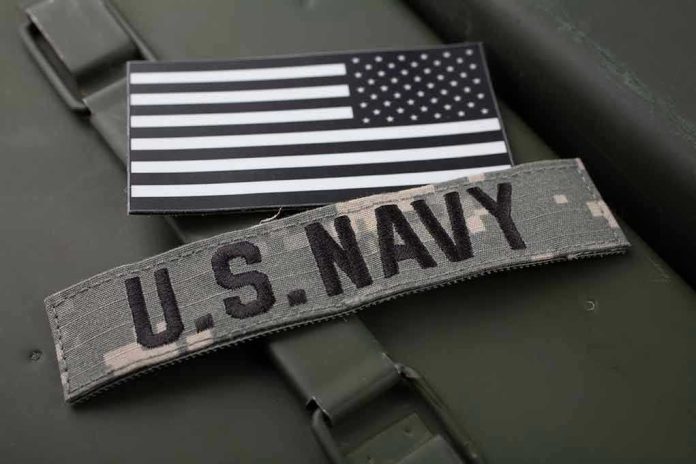
The Navy’s secretive handling of brain injuries among elite pilots has ignited a firestorm in Congress, exposing a culture of neglect that puts both national security and service members’ lives at risk.
Story Snapshot
- Congress demands full Navy disclosure after suicides linked to undiagnosed brain injuries in F/A-18 pilots.
- Project Odin’s Eye, a covert Navy study on pilot brain trauma, was launched without formal medical oversight.
- Military culture and lack of transparency have left aviators and families fighting for recognition and care.
- House Oversight Committee intensifies pressure for accountability and reform in military aviation health protocols.
Congressional Probe Targets Navy Secrecy After Pilot Suicides
In February 2025, the House Oversight Committee, led by Chairman James Comer and Representative William Timmons, issued a formal demand to the Navy for comprehensive data on brain injuries and mental health among naval aviators. The call comes after three F/A-18 Super Hornet pilots died by suicide over two years, each reportedly showing symptoms consistent with traumatic brain injury (TBI). Lawmakers accuse the Navy of failing to fully recognize or address the neurological risks faced by pilots operating high-performance aircraft, raising urgent questions about both readiness and care for America’s warriors.
The controversy centers on “Project Odin’s Eye,” a secretive Navy initiative begun in early 2024 to investigate the prevalence and causes of TBI and cognitive issues among aviators. Notably, this project was reportedly launched without the formal approval of Navy Medical or Air Commands, bypassing established oversight and protocols. The existence of Project Odin’s Eye only came to light through whistleblower pilots and media investigation, fueling congressional concerns that the Navy has prioritized operational tempo over the long-term health of its personnel.
Pilots, Families, and Advocates Demand Accountability
Families of the deceased pilots and advocacy groups like No Fallen Heroes have been at the forefront of demanding recognition for the problem. They argue that military culture stigmatizes mental health struggles, discouraging pilots from reporting symptoms out of fear for their careers. As a result, cognitive and psychological symptoms—including memory loss, mood changes, and depression—often go undiagnosed or untreated, sometimes with fatal consequences. The lack of transparent investigation into these suicides has intensified mistrust and pushed Congress to act.
Veterans’ advocates and former pilots assert that repeated exposure to high G-forces, rapid acceleration, and violent carrier landings cause cumulative brain trauma that is still poorly understood. Experts outside the military have warned that these injuries, while sometimes subtle, can be irreversible if not properly detected and managed. They stress that the Navy’s failure to systematically monitor and treat TBI puts not only aviators but also the broader mission at risk, as impaired judgment or delayed reaction times in the cockpit can have catastrophic results.
Military Culture and Lack of Transparency Fuel Crisis
The Navy operates some of the world’s most advanced fighter jets, demanding peak performance from its pilots. Yet the same culture that celebrates toughness often penalizes those who admit to injury or seek help. Historically, the focus within military aviation has been on visible trauma and acute injuries, leaving cumulative neurological harm largely unaddressed. Congress’s investigation has highlighted the need for a cultural change—where reporting health concerns is seen as a mark of professionalism, not weakness.
Despite mounting evidence and advocacy, the Navy has yet to issue a substantive public response to the Committee’s demands. Officials have, at times, denied a proven link between flight operations and TBI, but families and medical experts counter with lived experience and growing clinical data. The unofficial status of Project Odin’s Eye raises further concerns about the chain of command, medical oversight, and whether institutional inertia is outweighing the duty of care owed to those who defend the nation.
Navy accused of neglecting brain injuries among pilots in new House probe https://t.co/t6bIdVQDHM
— Fox News Politics (@foxnewspolitics) August 28, 2025
The potential ramifications extend well beyond the Navy. If Congress uncovers systemic neglect or a pattern of underreporting, it could lead to sweeping reforms in how all branches of the military handle invisible injuries. There are also broader implications for the aviation industry, as many former military pilots transition into commercial roles. Ensuring their long-term health and functionality is not just a matter of justice for veterans, but a safeguard for public safety and national defense.
Sources:
Concussion Alliance: Years of Fighter Jet Flying May Be Causing Brain Injuries in Navy Pilots
Stars and Stripes: Congressional Inquiry and Navy Response
MAC Concussion: The Facts About Traumatic Brain Injuries in the Military
Health.mil: DoD TBI Worldwide Numbers



